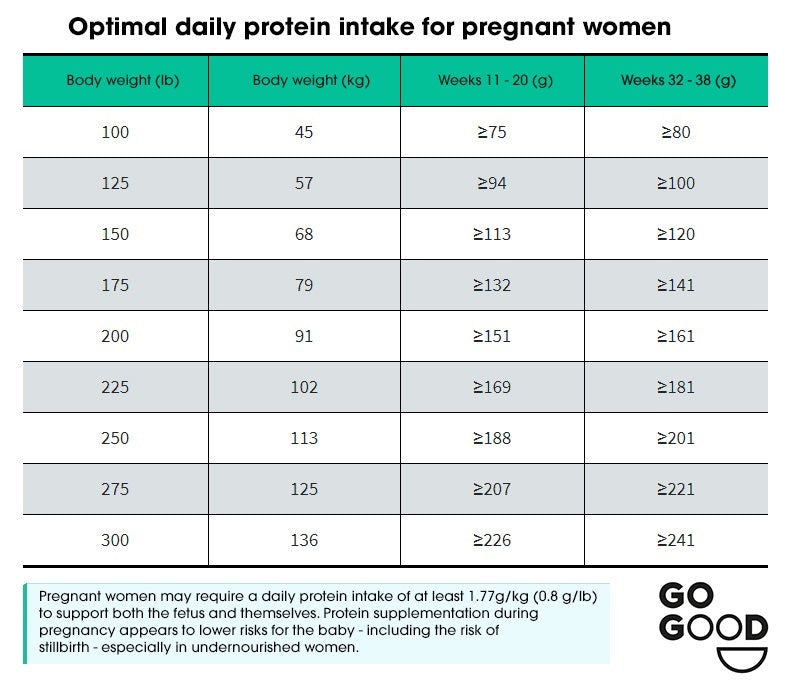
By now you should know why you need to consume a good amount of protein during and after pregnancy, so let’s move onto how to get enough protein into your diet on a daily basis.
It’s certainly not always easy nor convenient.
As we’re sure you know, protein comes from a large amount of sources: meats, nuts, dairy, and vegetables – there’s a lot! But most of these will take a degree of preparation and with your new responsibilities for baby, it might be difficult to find a time to do the necessary preparation.
We’re here to offer you a permanent solution, one which will save you time, effort and money – all while making sure both your own and baby’s nutritional needs are met to the highest possible quality:
Protein Powder.
Protein Powder? Really?
Yes! We’re sure you’ve heard of it before.
Generally made from whey milk protein and used by athletes to boost their daily intake of protein for building muscles, it’s nutritional benefits beyond the gym floor have identified protein powder as a high nutrient, convenient and healthy protein source. As a result it is now being used as a mainstream addition to many people’s diets.
More recently protein powder has become very popular for those on a diet - trying to cut down their calories while also keeping their protein intake high. They’re an easy, convenient means of increasing your daily protein intake, while also proving to be very cost-effective.

Is Protein Powder Safe For Me To Consume While Pregnant?
Generally yes, but not all protein powders will be recommended to consume while you’re pregnant or breastfeeding. Here’s a list of what you should be wary of when selecting a protein powder, while keeping the recommended nutritional guidelines for pregnancy in mind (Ministry of Health 2006):
Excess Stimulants Or Vitamins
Many protein powders have added vitamins and stimulants, such as caffeine. These should be avoided as excess vitamins and caffeine consumption is not recommended during pregnancy. If you’re eating a balanced diet or, like many, already take a multivitamin, it can be pointless and sometimes harmful to consume more. For pregnant women it is also recommended to keep caffeine intake to under 200mg per day – so be wary of boosting that number by having it in your protein powder.
Artificial Sweeteners
For the diet conscious individuals who are looking to really keep their calories low, some protein powders are full of artificial sweeteners. These can be unsuitable for pregnant women as they can cross the placenta and make it to the baby. Any protein powders containing saccharin should definitely be avoided while other sweeteners such as xylitol, sucralose and stevia also have some uncertainty over whether they post a risk or not. So it’s best to avoid any powders containing these ingredients.
In all honesty it’s best to avoid protein powders that contain artificial sweeteners altogether.
Fillers and Artificial Flavourings
‘Fillers’ are sometimes added to protein powders in order to add bulk when they’re mixed into a shake. They boost texture and consistency and can make the protein shake taste better. Examples of these include xanthan gum, guar gum and palatinose all of which have little to no nutritional value or benefit. Likewise, flavoring agents are usually devoid of nutrition and often aren’t as natural as they claim to be. They’re often treated chemically and processed before being added into the protein powder.
Like artificial sweeteners, it’s best to avoid fillers and artificial flavorings.

How The Protein Powder Is Manufactured
What you eat during pregnancy and while breastfeeding is passed on to your baby in some form or another. Therefore, it’s very important to pay attention to how protein powder is manufactured.
Check the manufacturer of the protein powder and ensure the product is free of pesticides, chemicals and hormones. This is especially important when you’re using dairy-based powders such as whey protein. Dairy products can contain traces of hormones such as bovine growth hormone (a drug used to increase milk production in cows) which isn’t good for your baby. Additionally, for any women with an intolerance to dairy, any whey-based protein powder is going to be unsuitable.
Most manufacturers will promote their choice of better manufacturing practices and protein sources. As a general rule of thumb if this is not listed or advertised then the source can be questionable.
Other Performance Enhancing Ingredients
Nowadays, many protein powders will come with a warning label if they use ingredients unsuitable for pregnant or breastfeeding women or children. Many powders can contain ingredients such as creatine, taurine, beta-alanine, acetyl L-carnitine HCL. All of these ingredients should be avoided by pregnant women so it’s always a good idea to look into the ingredients label and identify anything unsuitable.
The Bottom Line
Taking the above points into consideration, protein powders are considered safe for both pregnant and non-pregnant women.
That being said, it’s always a good idea to run the idea of using protein powder past your doctor or midwife. You can even bring the product to your doctor if you’d like them to take a look at the nutritional label of ingredients.
New to Go Good?
Receive 15% OFF your first order with code BABY at the checkout. International shipping available on all orders. Free shipping in NZ on orders over $99. Shop now!
References
1. 10 secrets to an easier labor. (2015, July 14). Parents. https://www.parents.com/pregnancy/giving-birth/labor-and-delivery/10-secrets-to-an-easier-labor/
2. Protein needs during the third trimester. (n.d.). Healthy Eating | SF Gate. https://healthyeating.sfgate.com/protein-needs-during-third-trimester-9469.html
3. How much protein in the second trimester? (n.d.). Healthy Eating | SF Gate. https://healthyeating.sfgate.com/much-protein-second-trimester-8211.html
4. Malik, V. S., et al. (2016). Dietary protein intake and risk of type 2 diabetes in US men and women. https://www.ncbi.nlm.nih.gov/pmc/articles/PMC4832052/
5. Ministry of Health. 2006 (revised 2008). Food and Nutrition Guidelines for Healthy Pregnant and Breastfeeding Women: A background paper. Wellington: Ministry of Health.

